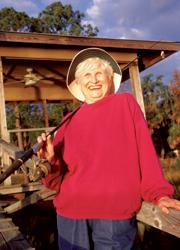INCONTINENCE: World Continence Week 19-25 June
 Incontinence describes any accidental or involuntary loss of urine from the bladder (urinary incontinence) or bowel motion, faeces or wind from the bowel (faecal or bowel incontinence). It may cause distress as well as being a hygiene problem. However, incontinence can be managed and treated.
Incontinence describes any accidental or involuntary loss of urine from the bladder (urinary incontinence) or bowel motion, faeces or wind from the bowel (faecal or bowel incontinence). It may cause distress as well as being a hygiene problem. However, incontinence can be managed and treated.
If you have experienced this problem, you are not alone. Incontinence is a widespread condition. It can range from ‘just a small leak’ to complete loss of bladder or bowel control. In fact, over 4.8 million Australians have bladder or bowel control problems for a variety of reasons.
It is likely that the true number of people affected is much higher. Many people do not tell their doctor or pharmacist about their incontinence, due to embarrassment. Some people mistakenly think that incontinence is a normal part of ageing or that it cannot be treated. If you experience bladder or bowel control problems seek help, as the symptoms will not go away on their own and may worsen over time.
World Continence Week is held on 19-25 June 2017. The week is coordinated in Australia by the Continence Foundation (CFA). CFA provide resources and information for the public, including the National Continence Helpline (Ph. 1800 33 00 66). This Helpline is a free service staffed by continence nurse advisors who can provide information, education and advice to people with incontinence or those caring for someone with incontinence.
Urinary incontinence is quite common and often associated with pregnancy, childbirth, menopause or some chronic health conditions. It can range from a small dribble when you cough or laugh, to large flows of urine. Stress and urge incontinence are common types of urinary incontinence.
People with poor bowel control or faecal incontinence have difficulty controlling their bowels. This may mean they pass faeces or stools at the wrong time or in the wrong place. They may also pass wind when they don’t mean to or experience staining of their underwear. About 1-in-20 people experience poor bowel control. It is more common as you age, but many young people also have poor bowel control. People with poor bowel control also often have poor bladder control.
Treatment depends on the type of incontinence. It is therefore important that a continence assessment is conducted by a professional so an appropriate management plan can be developed. Lifestyle changes may significantly help some types of incontinence and these include:
- Drink about 6–8 cups of fluid each day (1.5–2 litres of water) spread evenly throughout the day, unless otherwise advised by your doctor. To avoid disruptions to your sleep, drink a little less in the evenings.
- Reduce the number of drinks containing caffeine (e.g. tea, coffee, hot chocolate and cola) as this can increase urge incontinence.
- Avoid constipation by maintaining a healthy balanced diet that contains plenty of fruit, vegetables and fibre.
- Lose some weight if required, as a modest amount of weight loss can improve urinary incontinence.
- Aim for 30 minutes of exercise most days.
- Do pelvic floor exercises to strengthen the pelvic floor muscles.
- Go to the toilet only when you need to, rather than ‘just in case’.
- Go to the doctor if you think you have a urinary tract infection.
There is a range of health professionals with specialist knowledge in continence management who can assist you www.continence.org.au.
At Fresh Therapeutics we help you understand which medicines (both prescribed and over-the-counter) can affect bladder and bowel continence.
We stock the Molimed® range of incontinence pants, pads and other aids – not all pads are the same. We also have information about the Australian Government Continence Aids Payment Scheme (CAPS). This program provides financial assistance for eligible people who have permanent and severe incontinence to meet some of the costs of incontinence management products.
As members of the Pharmaceutical Society Self Care Program, Fresh Therapeutics Pharmacies provide information about incontinence in the Self Care Fact Cards Bladder and urine control, Pelvic floor exercises, Fibre and bowel health, and Urinary tract infection.
Acknowledgement: Pharmaceutical Society Of Australia Health Column
